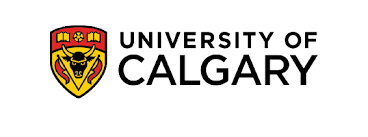UCalgary Medical Program Offers Unique Rural Experience
For a decade, Dr. Davis Yawney, MD’11, has been a cornerstone of health care in Taber, Alberta, serving as a dedicated rural family physician. His practice encompasses a spectrum of medical services, from comprehensive family medicine in his office to critical care in the community hospital’s emergency room. His expertise extends to obstetrics and hospitalist duties, including diagnosing and treating a variety of illnesses, and surgical assistance.
Dr. Yawney’s passion for rural medicine is evident in his commitment to reimagining health for all through the University of Calgary Longitudinal Integrated Clerkship program (UCLIC). His journey from UCLIC student to esteemed mentor underscores the profound impact of rural medicine on both his career and outlook.
UCLIC offers a unique opportunity for medical students at the Cumming School of Medicine (CSM) to immerse themselves in a rural community for most of their final year of undergraduate medical education. Managed by the CSM’s Distributed Learning and Rural Initiatives (DLRI), this program works with 14 sites across southern Alberta and the Territories. Since its inception in 2009, UCLIC has seen steady growth, integrating new communities and accommodating more students as capacity expands. It serves as a crucial avenue for training generalist physicians serving rural Alberta and beyond.
Yawney embarked on his medical journey in 2008, with enthusiasm and a deep-rooted desire to make a difference.
“I was open to exploring various specialties, from surgery to internal medicine and radiology,” he says. However, it was during his second year that Yawney’s introduction to UCLIC sparked his interest. Growing up in a small town, he was drawn to the idea of rural living and the diverse challenges it presents in health care.
In 2010, Dr. Yawney and his wife Eliza relocated to Taber to embark on his final year of med school as a UCLIC learner. Surrounded by a supportive community, including friends, family, and exceptional preceptors who provided supervision, guidance, and passed on decades of medical knowledge from their own practices, Yawney’s experience was transformative. “My time in UCLIC was extraordinary,” he says. “We embraced small-town life, cycling to work and cultivating a garden in our rental home.”
Rural family doctors need to be able to work as generalists, able to see all types of patients and work in many environments from the clinic to the hospital to long-term care centres and home visits. The close-knit community and the hands-on learning experiences that molded Dr. Yawney’s medical practice left an indelible mark on his career. “It shaped my style as a physician, emphasizing patient-centered care and comprehensive generalism,” says Yawney. “Encountering real-life patient presentations was a profound learning curve, but it equipped me with invaluable skills.”
Yawney’s journey underscores the invaluable lessons learned in UCLIC, where hands-on experience with diverse patient populations fosters a deep understanding of the intricacies of medical practice and the importance of patient-centered care.
He candidly describes the challenges of reconciling textbook knowledge with real-life patient encounters. “Real life isn’t neatly packaged like a textbook,” Yawney says. “It was a tough lesson to learn that real patient presentations are far more complex than those we encountered in pre-clerkship settings. UCLIC provided a unique opportunity to grapple with this reality head-on.”
After Yawney graduated, he settled permanently in Taber, offering health-care services to the community. And his commitment extends beyond Taber as a rural preceptor, mentoring future generations of doctors. “Teaching is immensely rewarding,” he shares. “Witnessing students make meaningful connections with patients and evolve into successful physicians brings me great pride.” The medical students seem to agree. Dr. Yawney is among the most highly regarded rural preceptors, and a past winner of the DLRI Rural Inspiration award.

